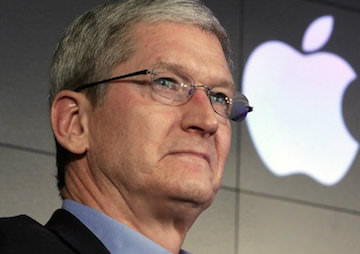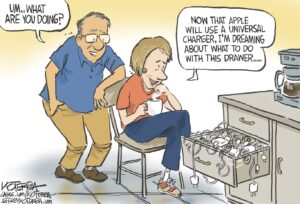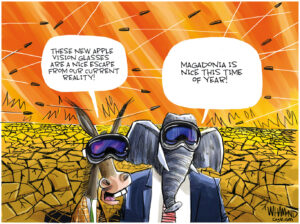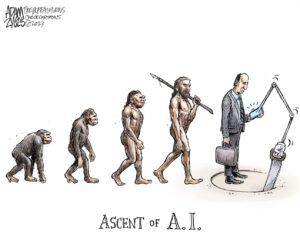FBI Drops Lawsuit Against Apple, Saying ‘Third Party’ Has Helped It Unlock iPhone
While the legal battle may now be over, the debate about privacy and surveillance continues. Apple CEO Tim Cook. (Flickr)
Apple CEO Tim Cook. (Flickr)
The U.S. government has filed a motion to drop its lawsuit demanding that Apple help it break into the iPhone of one of the San Bernardino shooters. Now the bureau says that it has found a way to unlock the phone with the help of an outside party.
Wired reports:
In a motion filed with the court Monday afternoon, the Justice Department has asked a California court to vacate its previous order commanding Apple to create a software tool to help authorities break into the phone.
“The government has asked a United States Magistrate Judge in Riverside, California to vacate her order compelling Apple to assist the FBI in unlocking the iPhone,” United States Attorney Eileen M. Decker said in a statement. “Our decision to conclude the litigation was based solely on the fact that, with the recent assistance of a third party, we are now able to unlock that iPhone without compromising any information on the phone. … Although this step in the investigation is now complete, we will continue to explore every lead, and seek any appropriate legal process, to ensure our investigation collects all of the evidence related to this terrorist attack.”
The latest legal action comes after weeks of heated public exchange between the Justice Department and tech giant.
Following the Dec. 2, 2015, attack in San Bernardino, in which 14 people were killed, government investigators sought all possible information about the husband and wife who died in an exchange of gunfire with police the same day.
One of the shooters, Syed Rizwan Farook, had a locked iPhone that the FBI believed contained information about connections to terrorist organizations. Although a federal court demanded that Apple create software to allow the government to break into the phone, Apple refused—and a federal magistrate judge ruled in the company’s favor.
In an open letter published online last month, Apple CEO Tim Cook stated that the government’s demands would be an infringement on user privacy, saying that “building a version of iOS that bypasses security in this way would undeniably create a backdoor. And while the government may argue that its use would be limited to this case, there is no way to guarantee such control. … The government could extend this breach of privacy and demand that Apple build surveillance software to intercept your messages, access your health records or financial data, track your location, or even access your phone’s microphone or camera without your knowledge.”
The encryption debate drew even more attention last week, when the FBI announced that it might not need Apple’s help to break into the phone after all. This sudden shift surprised many and led to speculation about how the FBI would manage such a feat. (Truthdig had reported that the FBI had ways to break into the phone that did not depend on Apple’s help.)
While the legal battle may now be over, the debate about privacy and surveillance continues. Apple has said it would like to know how the FBI managed to get past iPhone security features. According to Wired, however, “Apple may never be able to get an answer to that question if the government classified the method. Also left unanswered is whether the phone actually contained any data useful to the government’s investigation that it had not already obtained through the iCloud backups of the phone.”
The case has outraged many who believe the Justice Department is overextending a 227-year-old law, the All Writs Act. Now, with the help of an unnamed, nongovernmental “third party,” the privacy rights of U.S. citizens could be compromised in ways we will never know.
Your support matters…Independent journalism is under threat and overshadowed by heavily funded mainstream media.
You can help level the playing field. Become a member.
Your tax-deductible contribution keeps us digging beneath the headlines to give you thought-provoking, investigative reporting and analysis that unearths what's really happening- without compromise.
Give today to support our courageous, independent journalists.






You need to be a supporter to comment.
There are currently no responses to this article.
Be the first to respond.